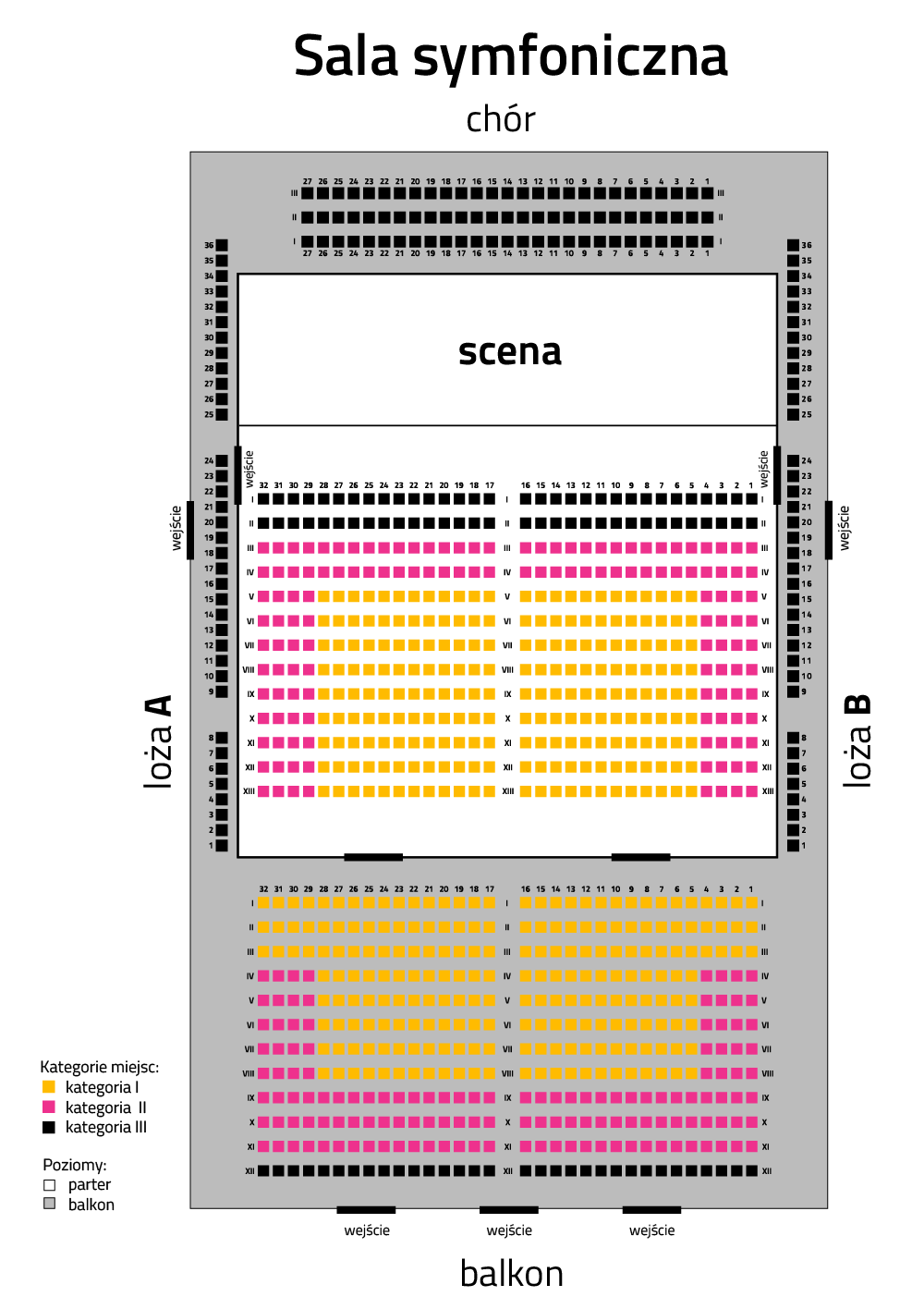"Orawa" crowns the series of Wojciech Kilar's compositions, inspired by highlander folklore. Since its first performance in Zakopane in 1986, it has become a hit in concert halls, delighting with its spontaneity, energy and temperament. In one of the conversations, the composer mentioned that he dreamed of creating a piece inspired by a highlander band, and he realized it in "Orawa": It is actually a piece for a multiplied band and one of the rare examples of when I was satisfied with my work.
Fourteen years after the spectacular premiere of Piano Concerto No. 1 in 2011, Wojciech Kilar composed his second concerto for this instrument. The piece is intended for piano, string orchestra and percussion. It is a four-movement work with contrasting links:
- Largo funebre
- Allegro tempestoso
- Larghetto riflessivo
- Allegro vivace.
The composition begins with a slow, meditative introduction, imitating the chiming of bells, introducing a funeral mood. The third movement is similarly reflective, while the second and fourth movements are vigorous and dynamic. The individual musical language of the composer is easily recognizable here. As in the previous pieces, the musical material is strictly limited to the necessary minimum. The piece features typical of Kilar's music, such as the repetition of musical motifs and phrases and long harmonic-textural planes introducing a static flow of musical time.
Wojciech Kilar is also one of the greatest film music composers. He has written soundtracks for over 160 films. He has collaborated with many directors, including with Andrzej Wajda, Kazimierz Kutz, Krzysztof Zanussi, Krzysztof Kieślowski and Roman Polański. He believed that there is no modern man who would not be in the cinema many times and would not watch films constantly, if not at the cinema, then through laziness on television or video. He rightly claims that this is the most widespread type of art today and that film attracts interest due to its genre diversity. Kilar gained world fame with his music in 1992 for Dracula, directed by Francis Ford Coppola.
An interesting anecdote related to "Dracula" was told by Krzysztof Zanussi, who recalled that when Kilar came to Coppola and brought the notes for the soundtrack to "Dracula", he met with the music editors before the recording. And a question was asked on their part, would he have instrumented it all himself? In the following, they had to be reminded of the adventures of various singers that they don't know the notes and still write some kind of music. American music editors are used to the fact that a composer comes, taps a piano melody, and then a craftsman who knows instruments, orchestras comes and writes the entire composition for instruments. And Wojtek was treated like that at the beginning. Wojtek reacted, as he said, with great indignation: "But I am a composer, so I instrument myself; it is an integral part of my work". And the editor replied sadly, "Well, because you know, there's an additional ten thousand dollars to be charged for the instrumentation, don't you want it to be paid to you?" And then Wojtek shouted in a loud voice: "But of course" – because he understood that it was not about honour, but about money! (source: Maria Malatyńska and Agnieszka Malatyńska-Stankiewicz Scherzo for Wojciech Kilar).

